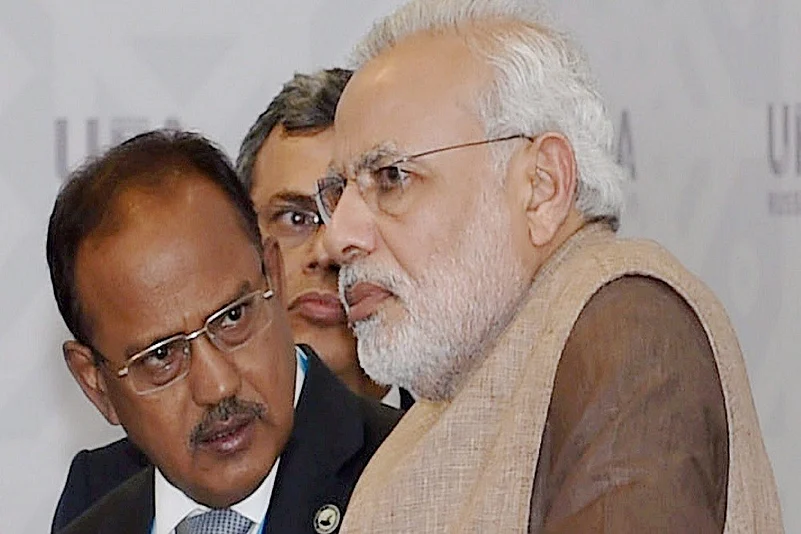India is soon going to roll out a system to collectively deal with emerging security challenges including that from drones like the one allegedly used in attacks on the Jammu Air Force station on Sunday.
A high-level meeting chaired by Prime Minister Narendra Modi has taken key decisions in this regard, according to well-placed sources. Home Minister Amit Shah, Defence Minister Rajnath Singh and National Security Advisor Ajit Doval were also present in the meeting held on Tuesday, people familiar with the development said.
"The government is coming out with a policy to collectively deal with the emerging challenges. It was decided to expedite the framing of the policy," one of the persons cited above said after the meeting.
Advertisement
The meeting took place two days after explosives-laden drones were used to carry out an attack on the Jammu Air Force station in the first such instance of suspected Pakistan-based terrorists deploying unmanned aerial vehicles to strike at vital installations.
Various ministries and departments are working on the policy to effectively counter the new and emerging non-traditional security challenges facing the country.
The defence ministry and the three services will play a leading role in the formulation of the policy as well as in its implementation by coordinating with all the leading stakeholders and security agencies.
It has also been learnt that the three forces are being told to adequately focus on bridging the gaps in effectively dealing with new-age challenges such as drone attacks and go for the procurement of the necessary hardware to contain those.
Advertisement
The meeting also discussed various other aspects, including equipping the security forces with modern equipment and involving more youngsters, start-ups and the strategic community in the field.
The Army has already been working on incorporating artificial intelligence, cognitive sciences, robotics, drones, quantum computing, nanotechnology and cyber capabilities as part of the efforts to deal with future challenges.
The people said the three services as well as key national security planners will have a series of meetings in the next few weeks and months to speed up the work on the policy.
They said the services have already been told to focus on acquiring anti-drone technologies to deal with attacks by unmanned aerial vehicles.
Following the Jammu attack, the Indian Air Force has enhanced the security at all its bases located in the border areas.
The Defence Research and Development Organisation (DRDO) has developed anti-drone technology to shoot down hostile drones in the range of two to three kilometres.
It is expected to conduct more research on extending the range.
A day after the attack on the Jammu Air Force station, fresh attempts to target the Ratnuchak-Kaluchak military station in Jammu with drones were thwarted by alert soldiers.
(PTI inputs)




















